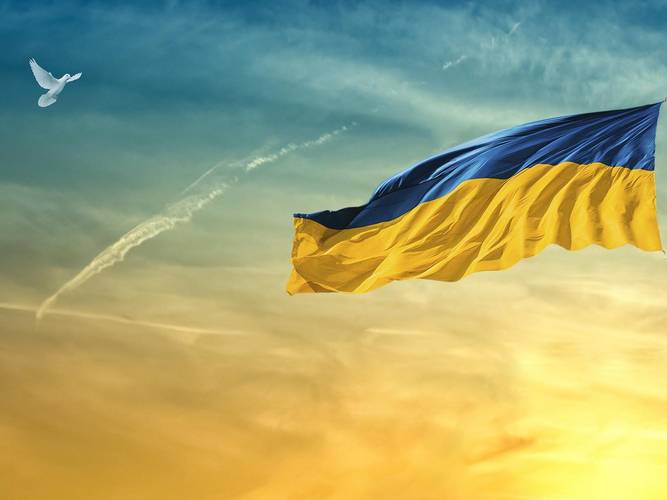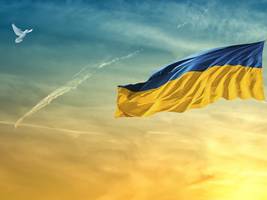A complainant turned to the Human Rights Ombudsman of the Republic of Slovenia (Ombudsman) who pointed out that the media coverage of the war in Ukraine 'only reports on one side of this tragedy; that he tried to access Russian portals and media multiple times, but that proved to be impossible; that he then turned to the editor-in-chief of the Slovenian National Television, the Minister of foreign affairs, but only received an answer from the Agency for Communication Networks and Services of the Republic of Slovenia (AKOS), which explained that Russian programmes are blocked as part of the 'EU Regulations as measures versus Russia as part of the sanctions.' The complainant opposed this from the perspective of media freedom and the right to information and deemed that all sides of the conflict must be listened to, even though Russia is the aggressor in this case, and allow citizens access to all information and not just information that conforms to current politics. In his opinion, this represents a violation of his right to information and the formulation of his own opinion on the war in Ukraine. He wanted the Ombudsman to 'initiate all necessary procedures for the annulment of said measures and to call on the Slovenian politics (government and National Assembly) to distance itself from the EU Regulation as mentioned above.''
The Ombudsman explained to the complainant that the measures above are the Council Regulation (EU) 2022/350 of 1 March 2022 amending Regulation (EU) No 833/2014 concerning restrictive measures given Russia's actions destabilising the situation in Ukraine and the Council Regulation (EU) 2022/2474 of 16 December 2022 amending Regulation (EU) No 833/2014 concerning restrictive measures because of Russia's actions destabilising the situation in Ukraine, are subject to and adopted by the Council of the European Union and are not subjects which fall under the jurisdiction of the Ombudsman and whose effects he could examine as such. We explained that acts by the European Council can be subject matter of proceedings before the General Court of the EU (General Court). It has legal jurisdiction to hear judicial claims by natural or legal persons on the annulment of acts by institutions, organs, offices, and agencies of the European Union they are referred to or they directly and individually deal with and against regulations directly pertaining to them and require no implementing measures.
On the case the complainant submitted to the Ombudsman, we further explained that the General Court already ruled on a lawsuit by Russia Today (RT) France versus the Council of the European Union, where the court was called to annul the Council Regulation (EU) 2022/350 of 1 March 2022 (case number T-125/22). Among other things, the above-mentioned lawsuit explicitly pointed out a violation of freedom of expression and information, both guaranteed by Article 11 of the Charter of Fundamental Rights of the European Union. In its judgement on 27 July 2022, the General Court provided an in-depth presentation of its position on the infringement (Articles 142-215) but has failed to determine a violation of the public right to information (Article 214 of the aforementioned judgement), since 'if the impairment of rights to broadcast programmes that include support for the act of aggression is justified and proportionate (in Articles 149-191 of the judgement), the same applies a fortiori to the impairment of public rights to receive such programmes.' Among other things in the judgement, the General Court deemed (Article 212) that, based on the extensively presented circumstances of the case, the European Council was rightly justified in its belief that with respect to Article 11 of the Charter of Fundamental Rights, forms of expression whose aim is to justify and support military aggression committed in violation of international law and the Charter of the United Nations must be prevented. 4.0-1/2023
Alleged violation of the right to information on the war in Ukraine
Priporočilo: A complainant turned to the Human Rights Ombudsman of the Republic of Slovenia (Ombudsman) who pointed out that the media coverage of the war in Ukraine 'only reports on one side of this tragedy; that he tried to access Russian portals and media multiple times, but that proved to be impossible; that he then turned to the editor-in-chief of the Slovenian National Television, the Minister of foreign affairs, but only received an answer from the Agency for Communication Networks and Services of the Republic of Slovenia (AKOS), which explained that Russian programmes are blocked as part of the 'EU Regulations as measures versus Russia as part of the sanctions.' The complainant opposed this from the perspective of media freedom and the right to information and deemed that all sides of the conflict must be listened to, even though Russia is the aggressor in this case, and allow citizens access to all information and not just information that conforms to current politics. In his opinion, this represents a violation of his right to information and the formulation of his own opinion on the war in Ukraine. He wanted the Ombudsman to 'initiate all necessary procedures for the annulment of said measures and to call on the Slovenian politics (government and National Assembly) to distance itself from the EU Regulation as mentioned above.''

Foto galerija
(1)
